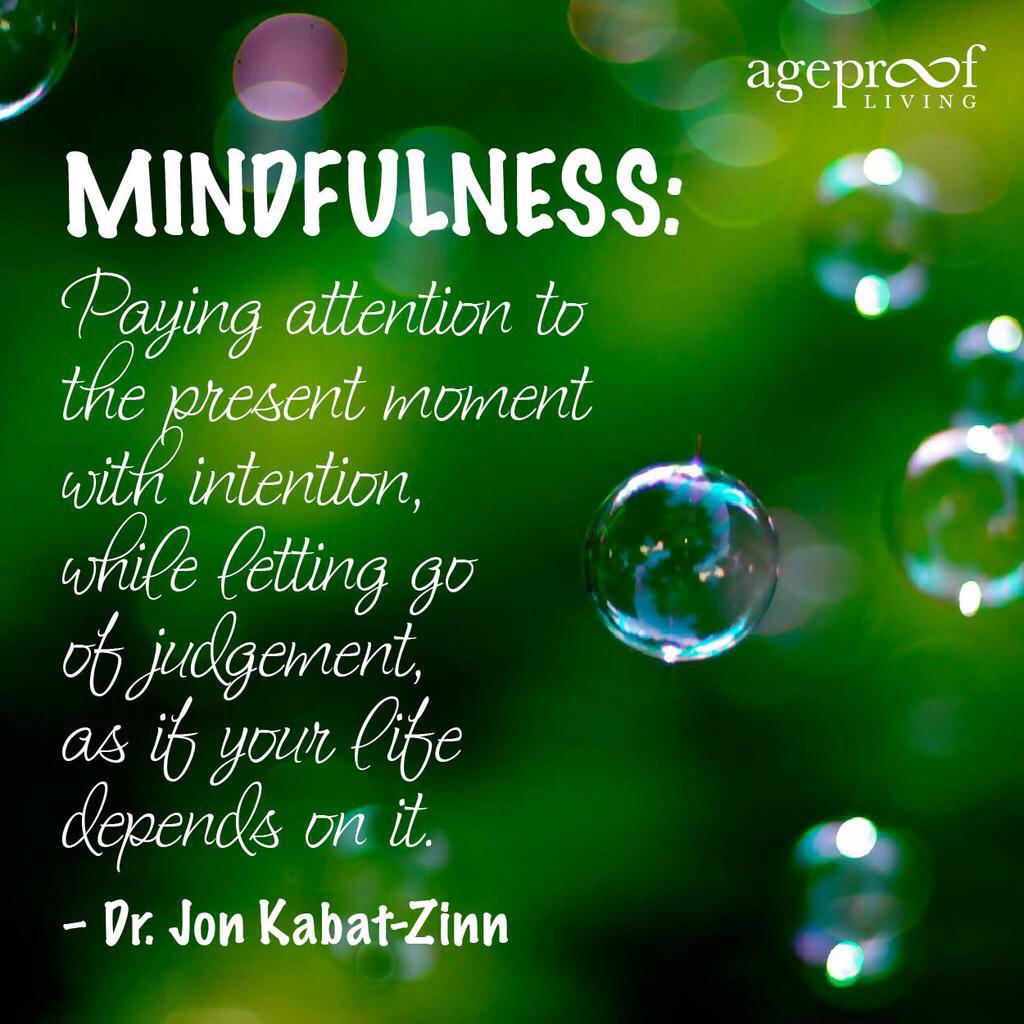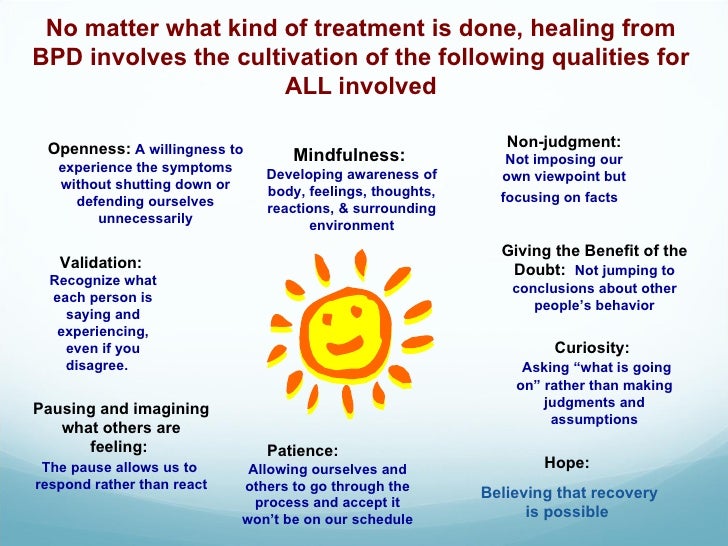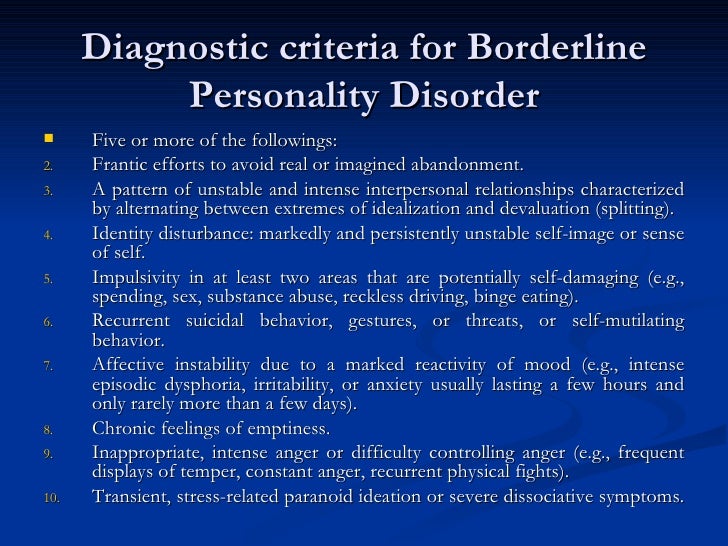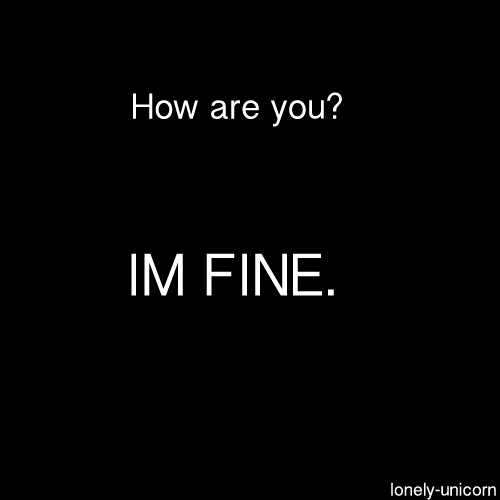- Messages
- 9,017
http://www.bpdrecovery.com/twisted-thinking
The Ten Forms of Twisted Thinking
From "The Feeling Good Handbook" by David D. Burns, M.D. 1989
1989
As you work through your recovery and become more skilled at using The Four Agreements and The Five Steps, you will find yourself becoming more aware of twisted thinking as part of your Borderline view of the world around you. These guidelines of twisted thinking from Dr. David Burns are invaluable to help you as your proceed on your journey of healthy, happy living.
1. All-or-nothing thinking - You see things in black-or-white categories. If a situation falls short of perfect, you see it as a total failure. When a young woman on a diet ate a spoonful of ice cream, she told herself, "I've blown my diet completely." This thought upset her so much that she gobbled down an entire quart of ice cream.
2. Overgeneralization - You see a single negative event, such as a romantic rejection or a career reversal, as a never-ending pattern of defeat by using words such as "always" or "never" when you think about it. A depressed salesman became terribly upset when he noticed bird dung on the window of his car. He told himself, "Just my luck! Birds are always crapping on my car!"
3. Mental Filter - You pick out a single negative detail and dwell on it exclusively, so that your vision of reality becomes darkened, like the drop of ink that discolors a beaker of water. Example: You receive many positive comments about your presentation to a group of associates at work, but one of them says something mildly critical. You obsess about his reaction for days and ignore all the positive feedback.
4. Discounting the positive - You reject positive experiences by insisting that they "don't count." If you do a good job, you may tell yourself that it wasn't good enough or that anyone could have done as well. Discounting the positives takes the joy out of life and makes you feel inadequate and unrewarded.
5. Jumping to conclusions - You interpret things negatively when there are no facts to support your conclusion.
Mind Reading : Without checking it out, you arbitrarily conclude that someone is reacting negatively to you.
Fortune-telling : You predict that things will turn out badly. Before a test you may tell yourself, "I'm really going to blow it. What if I flunk?" If you're depressed you may tell yourself, "I'll never get better."
6. Magnification - You exaggerate the importance of your problems and shortcomings, or you minimize the importance of your desirable qualities. This is also called the "binocular trick."
7. Emotional Reasoning - You assume that your negative emotions necessarily reflect the way things really are: "I feel terrified about going on airplanes. It must be very dangerous to fly." Or, "I feel guilty. I must be a rotten person." Or, "I feel angry. This proves that I'm being treated unfairly." Or, "I feel so inferior. This means I'm a second rate person." Or, "I feel hopeless. I must really be hopeless."
8. "Should" statements - You tell yourself that things should be the way you hoped or expected them to be. After playing a difficult piece on the piano, a gifted pianist told herself, "I shouldn't have made so many mistakes." This made her feel so disgusted that she quit practicing for several days. "Musts," "oughts" and "have nospam46" are similar offenders.
"Should statements" that are directed against yourself lead to guilt and frustration. Should statements that are directed against other people or the world in general, lead to anger and frustration: "He shouldn't be so stubborn and argumentative!"
Many people try to motivate themselves with shoulds and shouldn'ts, as if they were delinquents who had to be punished before they could be expected to do anything. "I shouldn't eat that doughnut." This usually doesn't work because all these shoulds and musts make you feel rebellious and you get the urge to do just the opposite. Dr. Albert Ellis has called this " must erbation." I call it the "shouldy" approach to life.
9. Labeling - Labeling is an extreme form of all-or-nothing thinking. Instead of saying "I made a mistake," you attach a negative label to yourself: "I'm a loser." You might also label yourself "a fool" or "a failure" or "a jerk." Labeling is quite irrational because you are not the same as what you do. Human beings exist, but "fools," "losers" and "jerks" do not. These labels are just useless abstractions that lead to anger, anxiety, frustration and low self-esteem.
You may also label others. When someone does something that rubs you the wrong way, you may tell yourself: "He's an S.O.B." Then you feel that the problem is with that person's "character" or "essence" instead of with their thinking or behavior. You see them as totally bad. This makes you feel hostile and hopeless about improving things and leaves very little room for constructive communication.
10. Personalization and Blame - Personalization comes when you hold yourself personally responsible for an event that isn't entirely under your control. When a woman received a note that her child was having difficulty in school, she told herself, "This shows what a bad mother I am," instead of trying to pinpoint the cause of the problem so that she could be helpful to her child. When another woman's husband beat her, she told herself, "If only I was better in bed, he wouldn't beat me." Personalization leads to guilt, shame and feelings of inadequacy.
Some people do the opposite. They blame other people or their circumstances for their problems, and they overlook ways they might be contributing to the problem: "The reason my marriage is so lousy is because my spouse is totally unreasonable." Blame usually doesn't work very well because other people will resent being scapegoated and they will just toss the blame right back in your lap. It's like the game of hot potato--no one wants to get stuck with it.
The Ten Forms of Twisted Thinking
From "The Feeling Good Handbook" by David D. Burns, M.D.
 1989
1989As you work through your recovery and become more skilled at using The Four Agreements and The Five Steps, you will find yourself becoming more aware of twisted thinking as part of your Borderline view of the world around you. These guidelines of twisted thinking from Dr. David Burns are invaluable to help you as your proceed on your journey of healthy, happy living.
1. All-or-nothing thinking - You see things in black-or-white categories. If a situation falls short of perfect, you see it as a total failure. When a young woman on a diet ate a spoonful of ice cream, she told herself, "I've blown my diet completely." This thought upset her so much that she gobbled down an entire quart of ice cream.
2. Overgeneralization - You see a single negative event, such as a romantic rejection or a career reversal, as a never-ending pattern of defeat by using words such as "always" or "never" when you think about it. A depressed salesman became terribly upset when he noticed bird dung on the window of his car. He told himself, "Just my luck! Birds are always crapping on my car!"
3. Mental Filter - You pick out a single negative detail and dwell on it exclusively, so that your vision of reality becomes darkened, like the drop of ink that discolors a beaker of water. Example: You receive many positive comments about your presentation to a group of associates at work, but one of them says something mildly critical. You obsess about his reaction for days and ignore all the positive feedback.
4. Discounting the positive - You reject positive experiences by insisting that they "don't count." If you do a good job, you may tell yourself that it wasn't good enough or that anyone could have done as well. Discounting the positives takes the joy out of life and makes you feel inadequate and unrewarded.
5. Jumping to conclusions - You interpret things negatively when there are no facts to support your conclusion.
Mind Reading : Without checking it out, you arbitrarily conclude that someone is reacting negatively to you.
Fortune-telling : You predict that things will turn out badly. Before a test you may tell yourself, "I'm really going to blow it. What if I flunk?" If you're depressed you may tell yourself, "I'll never get better."
6. Magnification - You exaggerate the importance of your problems and shortcomings, or you minimize the importance of your desirable qualities. This is also called the "binocular trick."
7. Emotional Reasoning - You assume that your negative emotions necessarily reflect the way things really are: "I feel terrified about going on airplanes. It must be very dangerous to fly." Or, "I feel guilty. I must be a rotten person." Or, "I feel angry. This proves that I'm being treated unfairly." Or, "I feel so inferior. This means I'm a second rate person." Or, "I feel hopeless. I must really be hopeless."
8. "Should" statements - You tell yourself that things should be the way you hoped or expected them to be. After playing a difficult piece on the piano, a gifted pianist told herself, "I shouldn't have made so many mistakes." This made her feel so disgusted that she quit practicing for several days. "Musts," "oughts" and "have nospam46" are similar offenders.
"Should statements" that are directed against yourself lead to guilt and frustration. Should statements that are directed against other people or the world in general, lead to anger and frustration: "He shouldn't be so stubborn and argumentative!"
Many people try to motivate themselves with shoulds and shouldn'ts, as if they were delinquents who had to be punished before they could be expected to do anything. "I shouldn't eat that doughnut." This usually doesn't work because all these shoulds and musts make you feel rebellious and you get the urge to do just the opposite. Dr. Albert Ellis has called this " must erbation." I call it the "shouldy" approach to life.
9. Labeling - Labeling is an extreme form of all-or-nothing thinking. Instead of saying "I made a mistake," you attach a negative label to yourself: "I'm a loser." You might also label yourself "a fool" or "a failure" or "a jerk." Labeling is quite irrational because you are not the same as what you do. Human beings exist, but "fools," "losers" and "jerks" do not. These labels are just useless abstractions that lead to anger, anxiety, frustration and low self-esteem.
You may also label others. When someone does something that rubs you the wrong way, you may tell yourself: "He's an S.O.B." Then you feel that the problem is with that person's "character" or "essence" instead of with their thinking or behavior. You see them as totally bad. This makes you feel hostile and hopeless about improving things and leaves very little room for constructive communication.
10. Personalization and Blame - Personalization comes when you hold yourself personally responsible for an event that isn't entirely under your control. When a woman received a note that her child was having difficulty in school, she told herself, "This shows what a bad mother I am," instead of trying to pinpoint the cause of the problem so that she could be helpful to her child. When another woman's husband beat her, she told herself, "If only I was better in bed, he wouldn't beat me." Personalization leads to guilt, shame and feelings of inadequacy.
Some people do the opposite. They blame other people or their circumstances for their problems, and they overlook ways they might be contributing to the problem: "The reason my marriage is so lousy is because my spouse is totally unreasonable." Blame usually doesn't work very well because other people will resent being scapegoated and they will just toss the blame right back in your lap. It's like the game of hot potato--no one wants to get stuck with it.





